Environmental Stewardship and Sustainability: Making a Difference
Responsible stewardship of our planet has long been a resonant theme at Moorestown Friends School. On the following pages, you’ll read about alumni who practice and foster responsible stewardship of the environment as part of their livelihoods. They’ve followed a diverse mix of career paths and provide thoughts about how we all can be more responsible stewards of our planet Earth.
What’s Happening Today at MFS
Students and faculty engage in environmental stewardship at MFS through activities both inside and outside of the classroom. Environmental stewardship is one of the main areas of focus in the school’s new Strategic Plan. Through numerous initiatives, the vision is for the school campus and programs to clearly communicate a commitment to sustainability and for students to be actively engaged at all grade levels in stewarding a healthy relationship with our planet and its resources.
Current Coursework
Topics related to environmental stewardship rise to the surface in many different subject areas, but are most notable within the Science Department. Stewardship and sustainability themes are woven into the curriculum at all levels, but become quite sophisticated as students get older. In the Upper School, several courses tackle these issues head on.
Science Teacher Matt Lubicky leads several semester-long courses, including Botany, Nutrition, and Oceanography. In a course such as Oceanography, it is inevitable that climate change is discussed as students learn and discuss the atmosphere and the oceans. “It gives students a barebones overview of climate change science,” said Mr. Lubicky.
The same holds true in a course like Nutrition. “You can’t get around talking about what goes into your body without talking about where that stuff comes from, which leads to discussion about corporate agriculture,” said Mr. Lubicky. The Nutrition class also includes a unit on ethical issues in nutrition. “Everybody comes with opinions. I see it as my job to lay out with clarity the science behind what we teach,” reflected Mr. Lubicky.
Lower School Science Teacher Becca Dawson weaves environmental stewardship into many lessons. Fourth graders discuss and model how human actions can disturb the equilibrium of ecosystems with devastating effects for the plants and animals. First graders explore the importance of wetlands habitats and build models demonstrating the consequences of building and other human-initiated changes affecting the functions of our wetlands.
Outside the Classroom
Several student and faculty/staff committees help keep environmental stewardship on the school community’s radar beyond the classroom.
The Upper School student-led Environmental Committee is currently leading several initiatives. “We are exploring how to properly compost food waste from the Dining Hall,” said Co-Clerk Aidan Short ’23. Other key projects this school year include planning for a Lower School Environmental Day, and continued management of an active beehive. The beehive project was originally launched in 2019, aided by a Friends Council on Education grant on which now-graduates Rachel Liu ’20 and Esha Nittoor ’20 did all the grant writing and planning in collaboration with advisor and Science Teacher Drew Newman. The committee is also actively involved in collaborative discussions surrounding environmental and sustainability issues with students from Friends Select, Germantown Friends, and William Penn Charter.
The Middle School Environmental Club has been sewing small cases for reusable utensils and has also made homemade gifts such as salt scrubs, coconut body oil, and organic lip balm. They also visited the MFS Thrift Store to explore the many items people can purchase second hand.
The Faculty/Staff Environmental Stewardship Committee (ESC) has been very active in promoting sustainable practices on campus. Formed three years ago, the committee has been a galvanizing force with students and faculty in promoting sustainable practices around campus, with specific emphasis on the Dining Hall. “We’ve tried to create ways for people to think about their choices and to provide more choices that are environmentally friendly and sustainable,” said ESC Co-Clerk and Coding Teacher Rachel Kaplan. The committee worked with the Business Office and Sage Dining to reduce the amount of plastic and paper packaging, which has been a delicate balance as the pandemic subsides. They set up bins around campus for people to deposit dishware after eating rather than using disposable products. “Tackling this issue has allowed us to increase people’s awareness of being environmental stewards,” said Preschool Assistant and ESC Co-Clerk Pauline Williams. The group has led many other initiatives throughout the school with the most
popular being Water Wednesdays and Trashless Tuesdays. Last year, a sticker design contest was held to promote Water Wednesdays, which encourage all students, faculty, and staff to drink from reusable water bottles. On Trashless Tuesdays, community members are challenged to bring a lunch that does not accumulate trash via wrappers, plastic containers, etc. The committee also recently organized an on-campus eWaste Collection and is involved in planning for Lower School Environmental Day this Spring.
Needless to say, there are many current students who are passionate about our environment who will follow in the footsteps of the alumni you will read about below.
Laura Duffy ’05
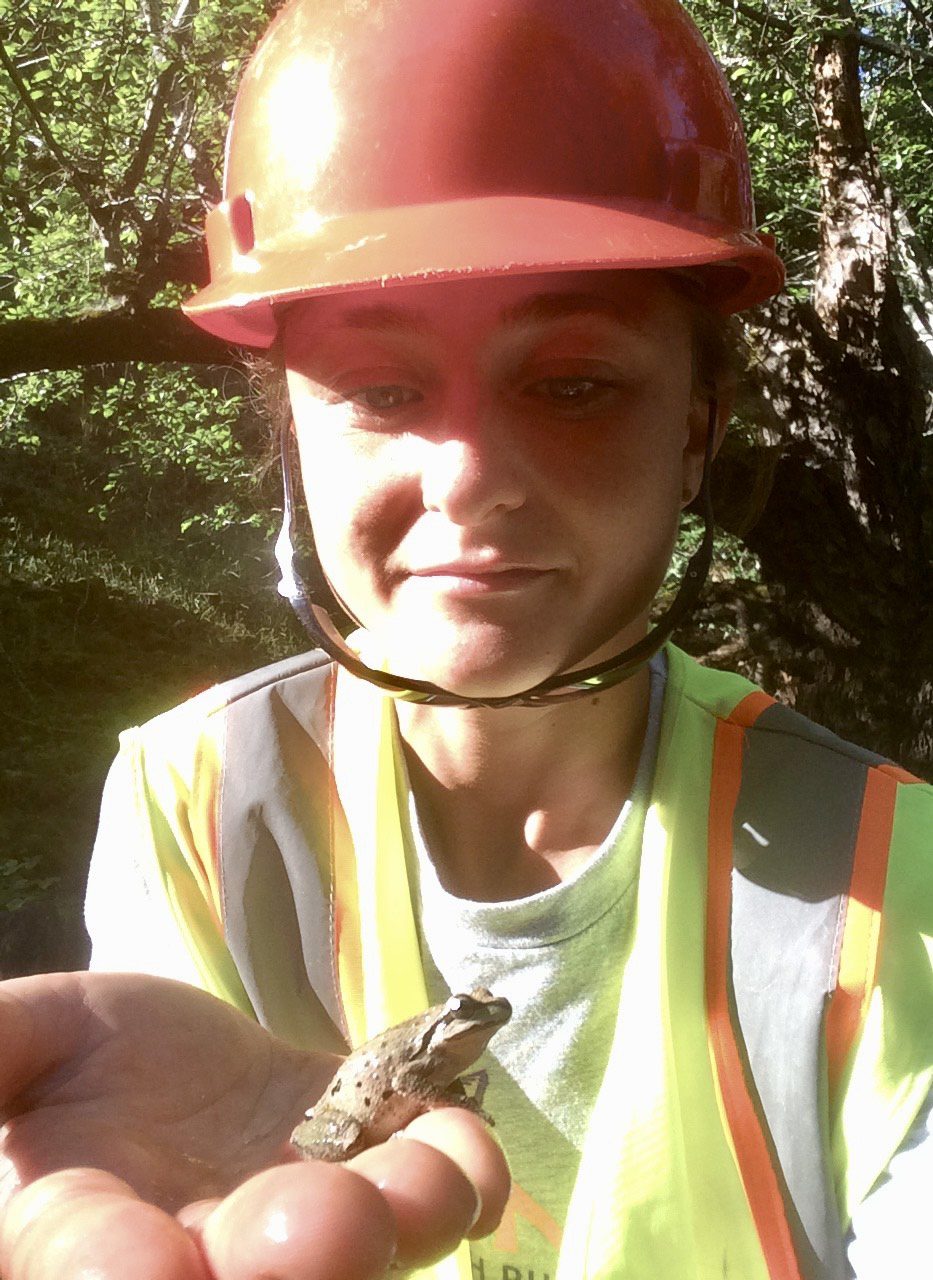 San Francisco, CA
San Francisco, CA
- Marine Ecologist and Wildlife Biologist, AECOM
- National Environmental Resources Act (NEPA) Specialist, Saltwater, Inc.
- M.Sc. in Marine Biology, San Francisco State University
- B.S. in Marine Biology and Biological Oceanography, College of Charleston
Your work in your own words…
Anytime a project gets public funding, it has to abide by certain environmental laws (think, Endangered Species Act, Clean Water Act, etc.). My work for both AECOM and Saltwater involves advising clients on the laws that apply to their work, coordinating with local, state, tribal, and federal agencies, as well as doing some of the applied science to gather necessary data for regulatory compliance. At Saltwater, Inc., I’m working directly with federal clients as a policy advisor for sustainable offshore program development in U.S. marine waters. In AECOM’s Natural Resources Department, I work with engineers during the design phase of large infrastructure projects such as bridges, power lines, or highways to minimize potential environmental impacts, advise on new sustainable ideas, and survey ahead of or alongside construction crews for sensitive habitat, protected resources, and other environmental monitoring.
I love being at the crossroads between science and policy, and I love being a liaison between conservation and development. Living and working in an urban area (including urbanized waters), it is important to understand how the natural ecosystems interact with business and industry ecosystems. The job brings a lot of variety with it – subject matter and people! I get to work directly with other scientists, economists, fishermen, construction workers, urban planners… Of course, the most exciting part is being out in the wild and getting to interact with the animals. Some days I’m on a boat monitoring marine mammal activity near a busy port, diving to monitor underwater restoration projects, hiking through cattle-grazing lands looking for evidence of endangered species of salamander, bats, and eagle nests. On the not-so-glamorous days I am literally the person stepping in front of a bulldozer to save a frog from getting squished, making sure diesel doesn’t leak into a stream, or surveying the destruction after a natural disaster. There are plenty of days spent in front of a computer, too, but we can all imagine what that is like…
How did your passion for environmental stewardship develop?
From a very young age I spent as much time outside as possible. I knew that no matter what I did for work, I wanted it to be outside and with a physical element to it. I definitely attribute my love of outdoor adventures to my dad. We spent endless hours wandering along streams, beaches, in forests and oceans – sometimes collecting interesting items, but also finding satisfaction in just observing the world and animal behavior. I attribute my discipline for stewardship to my mom (late Fourth Grade Teacher Margaret McKee). She was ahead of her time in her attention to non-plastic products, eating locally and seasonally, and always had a great respect for all people, animals, and cultures.
What are some specific ways that current students can prepare for careers/lives that foster environmental stewardship and sustainable practices?
(1) Get out there and start volunteering early, and in many different types of activities. It’s not only a resume booster, but stewardship and sustainable practices come, in part, from experiences outside “your bubble” and viewing others’ perspectives. (2) I can hear my mom’s voice saying, “READ!” Read about current events, listen to podcasts. There are many people sharing creative ideas on how to improve our planet, and the fun thing is, not all of it is innovative – some of the best sustainable practices have been in play for thousands of years, but now our access to information has never been easier. You never know where your next inspiration, research idea, or new research partner may arise. (3) Lead by example. Some people don’t want a lecture on recycling or why spiders are awesome (believe me, I’ve found this out by experience). However, there have been some really cool moments when people who see me picking up trash while walking my dog join in to help; when a friend’s kid sees me move a spider instead of killing it and all of a sudden wants to take a closer look and ask questions about it; when a client slows down to review information in more detail because I’ve gotten excited about it.
What are important issues related to environmental stewardship facing our country and world?
Renewable energy and food security are the top two issues that I am involved with these days. In the U.S. and other countries, we’re moving from oil to wind, solar, and other energy sources. We’re moving from overfishing to exploring aquaculture, from massive meat to more grain and plant-based diets. The reality is, though, that the newer industries have their environmental impacts, too. The good thing, now, is that new industries have to keep stewardship (e.g, attention to environmental and community impacts) and sustainability (e.g, attention to production scales) in mind, whereas in the past they were more focused on exploration and exploitation. Impact analyses happen not only because they are required by law, but also because of the strong attention and support from the public to do so. It is important that individuals demand responsibility from their governments to oversee sustainable development. Individuals can also demand responsibility from the companies driving these industries by voting with their dollars. Social media is a simple, but super effective way for individuals to get the message out there, gain support, and to explore others’ messaging around these topics.
Reflecting on MFS…
MFS provided a great education based on science, and solid ground to develop confidence and enthusiasm for what and who I wanted to be. MFS’s attention to diversity and peer mediation set the stage in my mind to be curious and respectful of others’ ideas. Relating to others, whether or not we agree on a subject, has helped me to extract information at times and has helped immensely when things get tense. MFS’s range of electives and extracurricular activities set the stage for teamwork and to explore my range of abilities through life. Last, a quote I heard recently goes, ‘movement is exercise for the body; stillness is exercise for the mind.’ Learning the value of meditation, mindfulness, and situational awareness during Meeting for Worship has definitely been one of the most important life skills I have taken with me by far.
Community at MFS was really influential. The students, teachers, coaches came from all walks of life. We lived in many different towns and cities across South Jersey. Coming together at school wasn’t always all “kumbaya;” but if nothing else, we were all
forced to come together during a school day, experience that day and school system together – we all recognized one another as participants, serving a role. And we all, for the most part, did it with respect. Respect was taught with intention. We can, of course, extrapolate that out to a workplace, our country, international travel, and to all ecosystems on our planet.
Dan Brooks ’05
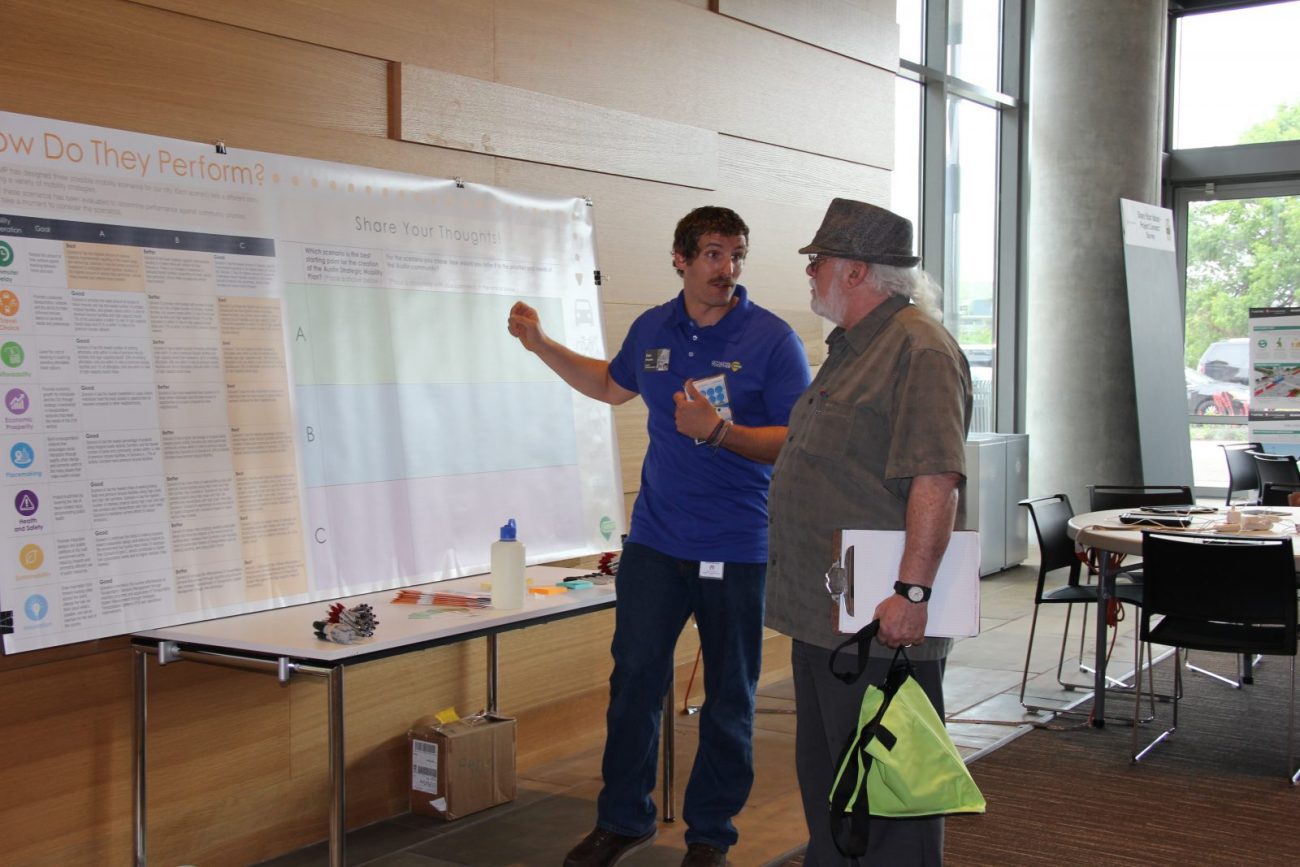 Austin, TX
Austin, TX
- Senior Planner, Austin Transportation Department
- M.C.R.P. (Master of City and Regional Planning), Rutgers University
- B.A., University of Rochester
Your work in your own words…
I work in the long-range planning group, and our goal is to develop the different transportation systems (our sidewalk system, roadway system, etc.) to work together to support the creation, maintenance, and expansion of Austin’s transportation network. This means each day or week might have a different focus, from working with neighborhood groups to understand how they want and need to move around their community to overseeing large planning processes that help oversee the location and type of major
infrastructure, like bike lanes or urban trails.
A lot of people are very skeptical of the government, but it is incredibly rewarding to have a conversation with someone and explain the city processes and thought processes that lead to decisions. It feels good when someone, especially someone who
is skeptical of your intentions, realizes that there is a method and reason why the city government does what it does.
What are important issues related to environmental stewardship facing our country and world?
Transportation is a major producer of greenhouse gases; in Austin it comprises over a third of our emissions. That percentage is growing as our city grows rapidly and housing is pushed away from employment centers. People sit in traffic trying to get to the same place at the same time as others. Transportation electrification is an important step towards helping limit these emissions, and the City of Austin is doing a lot of work to build out electric vehicle infrastructure across the city to facilitate this conversion equitably and efficiently.
Electrifying our cars is just one step of many that is needed. In Austin we’ve found that a majority of trips are fewer than three miles in length, so we do a lot of work to figure out we can help modify behaviors so these trips don’t have to be made in a
vehicle. This includes things like subsidies for electric bikes and a current expansion of a public transportation system.
How can people be environmental stewards in their everyday lives?
Not everyone has the ability to make choices in how they commute to work or travel to the store. You might live right next to a supermarket you can walk to or you may live in a house on a rural road that is only accessible by car. But for others, thinking critically about how we move around and interact with the world, such as using Amazon prime every day to have only one item delivered at a time, can make a big difference. I think of my transportation footprint a lot like my vote. On its own one vote or
a single person’s commute is unlikely to make a difference, but as each single decision adds up it can have a real impact.
Reflecting on MFS…
MFS taught me a lot of foundational skills that have helped me grow personally and professionally. I frequently rely on my ability to think critically and my ability to convey ideas clearly through both writing and discussion. Being respectful, considerate, and empathetic of others is also critical in my position. At times transportation planning is a zero sum game: a roadway in an established neighborhood may not have room for everything neighbors want from their street (for example, a full sized sidewalk, parking, a bike lane, etc). How one’s neighborhood grows and develops is deeply personal to people, so being able to work with people who have different goals requires a lot of understanding, patience, and communication skills.
Cynthia Hall ’97
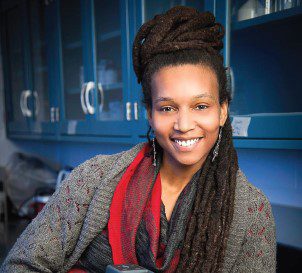 Cherry Hill, NJ
Cherry Hill, NJ
- Co-Owner, Free Haven Farms, Lawnside, NJ
- Adjunct Professor, Rowan University (Environmental Sciences) and West Chester University (Earth and Space Sciences)
- Ph.D. in Geochemistry, Georgia Institute of Technology
- B.S. in Chemistry, Howard University
After earning your Ph.D., you worked as a professor at West Chester University for 12 years. How did you become involved in your research on soil testing and the mitigation of lead exposure?
It really started in my backyard in Philly. I got the job at West Chester and my family moved from Atlanta to Philly and we started to grow food. My department had just gotten a new instrument which allowed you to test for heavy metals. I decided to test in our backyard and I found lead in our soil where our kids were playing and we were growing our vegetables. That moment literally turned my career and research focus.
My husband (Micaiah) got really into growing food. That connected me with the urban agriculture community in Philly. The research I did tied in with many of the local urban farms and personal gardens. I began to explore how soil contamination was affecting urban farms and growing spaces.
Describe the history and evolution of Free Haven Farms.
We lived in Philly for seven years and my husband was working on an urban farm and it got to the point where we wanted to buy a house and he really wanted more land to start his own farm. It was like serendipity. The stars just aligned. When we were looking to buy a house, a property became available in Lawnside, which is my hometown. My family has been there for four generations. We ended up buying this one-acre property and starting our farm.
Free Haven Farms has definitely evolved. We started the farm to grow food for Lawnside and other communities, especially to provide access for people in Camden and Philadelphia. But while we were doing our business with farmer’s markets and direct sales, we saw the need for education. So we turned into more of an educational farm rather than a commercial farm that just grows food. So with my background as an educator, it made sense for us to get into teaching food education. We now work with a few Philadelphia schools to develop gardens and grow food and run after-school programs. We want to expose more children to growing food in urban communities. We will be running summer camps here at Free Haven for four weeks for kids ages 5-12.
How was your passion for sustainable practices/environmental stewardship stoked and were there any moments/experiences that perhaps had an impact on you?
To be honest, it started at MFS. I started in sixth grade and remember immediately being exposed to recycling and stewardship in general. In Upper School, we discussed environmental issues and how they related to world problems and I specifically remember writing a paper on deforestation. That was the first time I really understood what it was.
What are some of the leading ways that people can be environmental stewards in their everyday lives?
As human beings, we’re all interested in food. We eat every day. The choices that we make around food are very important and have a real impact on the environment. The saying goes that “you vote with your dollar.” Choosing to buy local food and supporting our local farmers has such an impact, of course on the local economy, but also on the environment when you think about the fossil fuels needing to transport foods. People can make better choices about where they buy their food, and we’re doing better in this area as a country.
Cory Colijn ’06
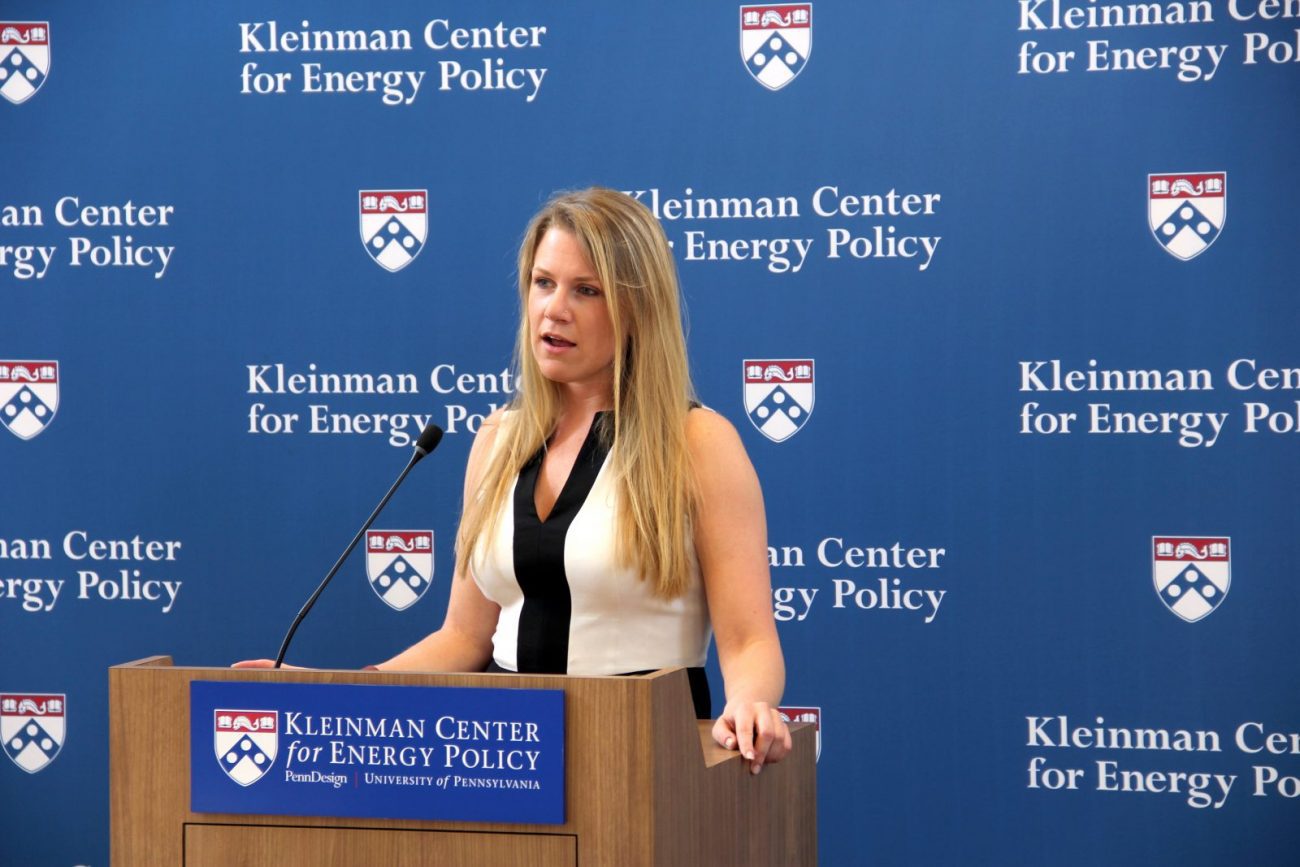 Philadelphia, PA and Little Compton, RI
Philadelphia, PA and Little Compton, RI
- Executive Director at Kleinman Center for Energy Policy, University of Pennsylvania
- B.A. in Environmental Studies and M.S. in Applied Geoscience (M.S.A.G.), University of Pennsylvania
Your work in your own words…
My main responsibility is conceiving and implementing our long-term strategy. This involves both integrating energy policy into the top priorities of the University and also connecting Penn’s academic research with real policy outcomes that further the energy transition in an equitable and sustainable way. In practice, I manage the center’s staff, oversee our operations, steward donors, recruit new faculty, and am responsible for our multi-million-dollar annual budget.
The debates in energy policy are so complex and change so quickly, which makes it impossible to get bored with the subject matter. Plus, working at a place like Penn means that I’m constantly challenged by people who are a lot smarter than I am. Combined, those two things mean I’m constantly learning, and that keeps things exciting.
How did your passion for environmental stewardship develop?
I grew up in a very small and sleepy town in a protected area of the Pine Barrens, a little over an hour away from Moorestown. As a kid, if I wasn’t in school, I was outside with my friends getting into all kinds of trouble. I think we may have been the last generation to really have free rein to explore a place like that. The influence all that time in nature had on my career choice is undeniable. But I think ultimately, it was gentle encouragement from my mother. She always believed I could “do” science and
was herself an environmentalist before it was trendy. She saw the prospects for a young woman in this field and really helped me see my own potential.
What are some of the leading ways that people can be environmental stewards in their everyday lives?
Nearly 85% of anthropogenic climate change was caused by greenhouse gas emissions related to the production, transmission, and consumption of fossil fuels in our energy sector. So, to care about the environment is to care about the decarbonization of our energy system. From the perspective of policy choices, the biggest decision we face is how to implement an adequate and appropriate price on carbon.
As an individual with everyday choices, simply use less. There are lots of ways to continue to consume in a more efficient or “green” way. But ultimately, we need to break the consumption cycle and just use less. In practice it means choosing to walk, bike, or take public transit when possible. It means eating less meat. It means turning off the lights. When you do need to consume, it means doing so smartly.
Reflecting on MFS…
Moorestown Friends taught me how to think. I was challenged by teachers, mentors, and maybe most importantly by my classmates, in a way that really allowed me to find my voice and become a confident student. Looking at the path my career has
taken, it’s helpful to break it down into pieces. Environmentalism, at its core, is a matter of equity and justice. And policy work is about building coalitions to further smart, sustainable public outcomes. When I think about my time at MFS, practicing values
like fairness and skills like consensus-building certainly come to mind. I also learned that when you’re in a position of privilege, it’s your responsibility to act on your principles and apply your skills in service of making the world a better place.
I remember two trips that I took while at MFS. One was a service trip to Heifer International at a ranch they owned in California and the other was to a program run by the state of New Jersey called Anytown. At the core, both trips opened my young eyes
to issues related to the environment and social justice. I learned so much. But I’m mostly grateful to the friends I made on these trips, many who continue to inspire me to be better and to do more.
Lauren Phillips ’21
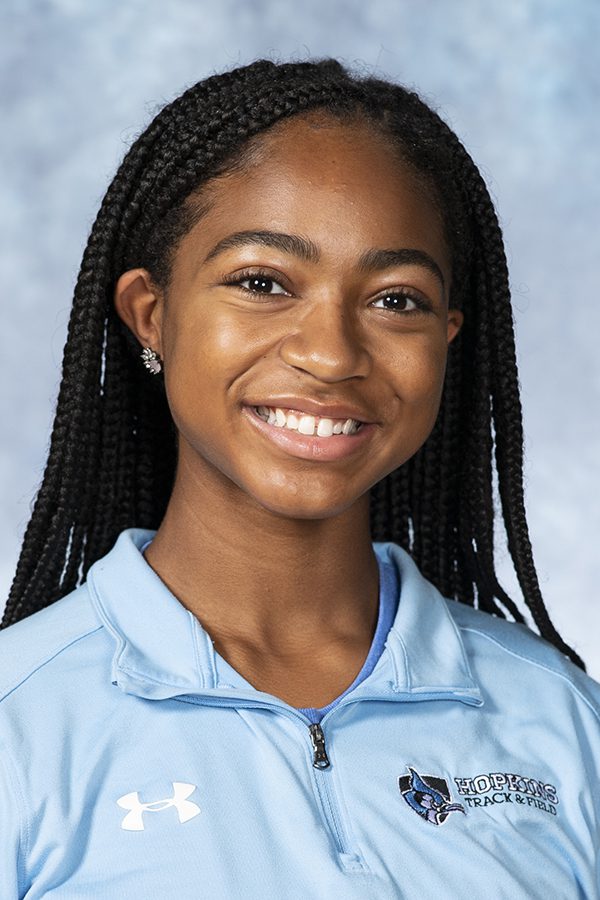 Baltimore, MD
Baltimore, MD
- Student, Johns Hopkins University
- Major: Mechanical Engineering
Your coursework in your own words…
I am a mechanical engineering major at Johns Hopkins University. I began as an undecided engineering major; this allowed me to explore the various engineering disciplines and make the best decision for my future career. Being a Mechanical Engineering major at Hopkins requires a depth of knowledge in Physics and Calculus, and the ability to apply those concepts to software languages and hardware design programs.
The first semester, my favorite courses were Mechanics I and the Sustainable Energy Systems seminar. Mechanics allowed me to practice a higher level of kinematics and kinetics. Sustainable Energy Systems was useful in understanding the systems
currently used to create clean energy and their advantages.
After graduation I hope to work on a small team utilizing sustainable methods to design and develop everyday products.
How did your passion for environmental stewardship develop?
I’ve had a lifelong interest in environmental issues, but the earliest I can remember is creating a pamphlet about light pollution after not being able to see many stars in elementary school. In high school, I realized I was most interested in engineering energy systems which led me to research what impact manufacturing has on the planet. After understanding the magnitude of the environmental issues attributed to the system of manufacturing, I know sustainable development is the best way for me to pursue my career. In my senior year at MFS, I completed my Capstone Project on water runoff and flooding on campus. I also researched water conservation and efficient rainwater methods for my project. I aimed to improve sustainability within MFS and create a cleaner environment for community members.
Reflecting on MFS…
There were many MFS teachers and courses that created a significant impact on my path to engineering. Science Department Chair Dr. Mosher and Math Teacher Mr. Omilian helped me find my passion for engineering the most. Watching their passion for teaching physics, calculus, and robotics demonstrated the lifetime love for STEM I hope to maintain.
Dr. Mosher gave every student exceptional support in Learning Fundamental Physics and Physics 2. Her interactive and collaborative approach to physics gave me the skills to thoroughly understand my current college physics and mechanics courses. Dr. Mosher was also an excellent Capstone Project advisor who gave me the connections and advice to complete a successful rainwater gauge system. Using PVC pipe, waterproof tape, and stakes, I was able to construct affordable rain gauges to catch rainfall throughout campus. Dr. Mosher aided me in monitoring the stability of the gauges during rainfall and deciding the best places to efficiently monitor rainfall.
Mr. Omilian is a large part of the reason I chose to become a mechanical engineer. As a student in Mr. Omilian’s electronics and robotics team courses, I saw him generously support students’ interests in the engineering process and provide a bounty of knowledge in robot development and competition. Mr. Omilian, in both his calculus and engineering courses, creates a safe and encouraging space for all students, regardless of initial skill level, to pursue their interests and education. Lastly, Mr. Omilian is such a positive and reliably kind teacher, who makes everyone smile.
Moorestown Friends has given me a great academic foundation going into college through a rigorous curriculum. Although I was most drawn to engineering, my other teachers taught me life skills and academic subjects that benefitted me in my overall
personal growth. History Department Chair Mr. Thomson taught me to never stop having fun in my passions; Math Department Chair Ms. LuBrant taught me compassion; Math Teacher Mr. Ottman taught me how to apply what I learn to everyday life and appreciate math. The humanities courses have given me sufficient experience in Harkness discussions to contribute to class discussions, in addition to the historical background to understand current events and policies. MFS has taught me lifelong lessons in valuing community and practicing stillness and self-reflection.
Rebecca Gildiner ’05
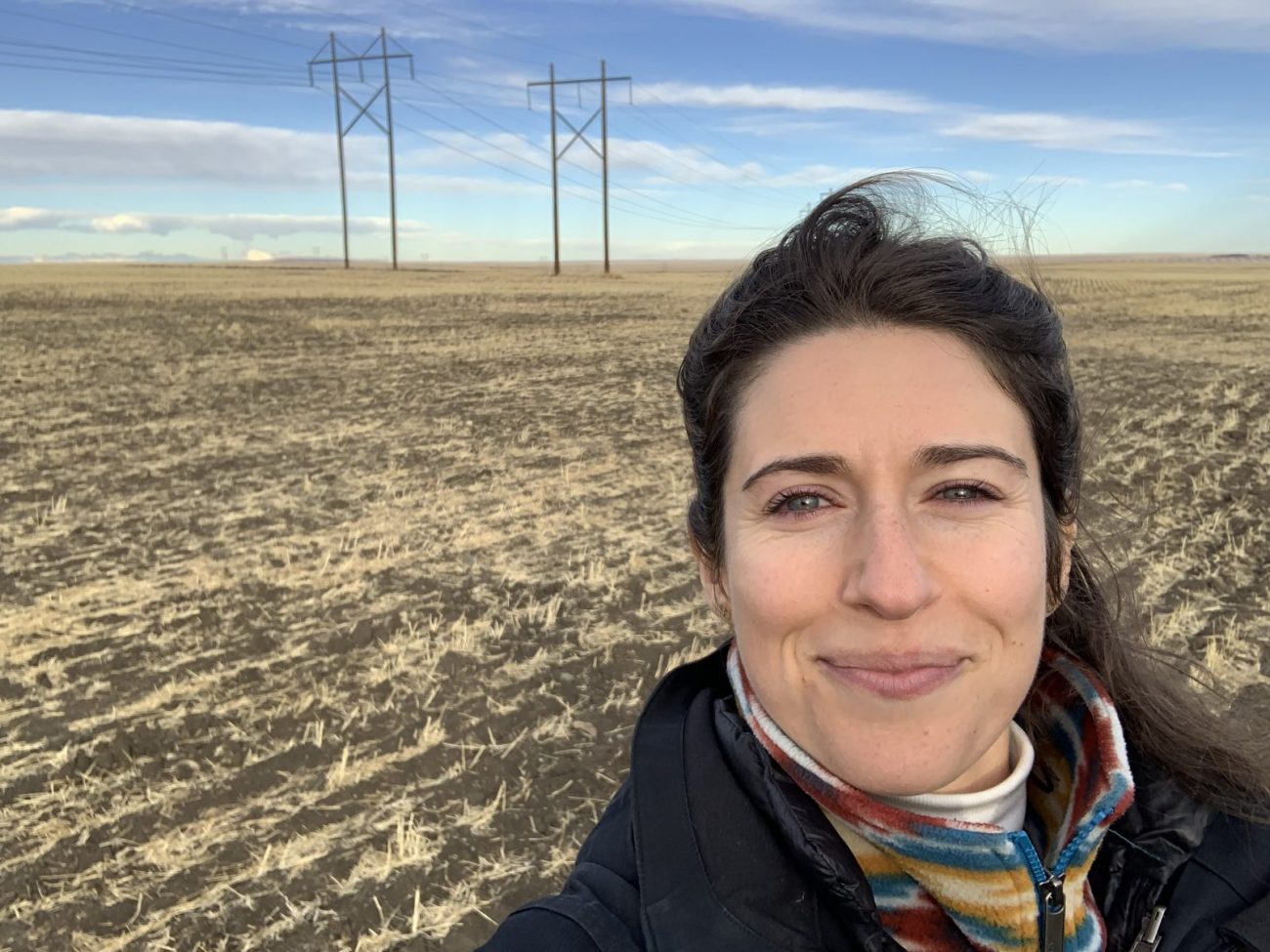 Brooklyn, NY
Brooklyn, NY
- Director of Sustainability, Daily Harvest
- M.E.M. (Master of Environmental Management), Yale School of the Environment
- B.A. in Behavioral Neuroscience and Women’s Studies, Colgate University
Your work in your own words…
I oversee sustainability at Daily Harvest, a frozen plant-based meal delivery service, which means developing strategy, programs, and measurement systems to manage our business’ social and environmental impacts. Internally, because sustainability touches every department, my day-to-day involves collaborating with other teams to build sustainability into their workstreams and measure our impacts based on our targets. Externally, I work with non-profit organizations and other partners to build programs that meet our shared goals for changing the food system.
The best part of my work is talking to and learning from farmers. The people who grow our food do some of the most difficult, important, and underappreciated work there is. Our food system is in deep need of repair and it all starts in the soil with farmers, so getting to the farm to understand their challenges, their strategies, their knowledge, and their own values is crucial to building an effective sustainable agriculture program as a business. I’m also a big nerd for agriculture so for me, seeing food grow and learning about soil is exceptionally fun!
What are some of the leading ways that people can be environmental stewards in their everyday lives?
The most important thing that we can all do is shift our worldview. As humans in the 21st century, we are exceptionally disconnected from the source of everything we interact with on a daily basis. It’s very difficult to create behavior change without that appreciation and cognizance of the natural resources and human labor that give us everything from tables to olive oil to even plastic shampoo bottles. We must shift the way we look at everything we have – it’s the only way we can recognize the importance of taking in balance, a difficult concept for capitalism to embrace. I recommend everyone read the book Braiding Sweetgrass by Robin Wall Kimmerer as an entryway into the indigenous worldviews to which we must return to secure humanity’s future on this planet – it truly all starts there.
What are important issues related to environmental stewardship facing our country and world?
As a food person, I’d be remiss not to remind us that our food has a tremendous impact on the environment, and we’ve come to accept extremely damaging practices as necessary and the norm. For example only 1% of US farmland is organic. While organic food has been given a reputation for being too expensive and not meaningful, the chemicals used to grow food in our country have been accepted as necessary to feed a growing world, while they poison our waters, our soil, our air, our farmworkers, and our bodies. We must start to take a systems approach to environmental problems – we don’t need chemicals to feed us, but for organic to be the norm we do need to reprioritize where our government and personal dollars go, reexamine what research we invest in, waste less food, and think about the costs we’re already taking on to manage the impacts of those chemicals. So if you can afford to, buy more organic food, eat mostly plants and make them diverse, and vote for lawmakers who are advocating for sustainable agriculture!
Reflecting on MFS…
I had the privilege of transferring to MFS in the middle of high school at a time when I needed a new start. Being at MFS helped me find my light, my confidence, my creativity, and love of learning again. It allowed me to immerse myself in the intellectual reward of classes rather than the competitive metrics I had formerly been taught to value. I’ll never forget the radical coursework I was exposed to, the ways I was asked to think critically, the experiential learning opportunities that were open to me, and the new dimensions of myself I was encouraged to explore. MFS saved me at a time when I was losing my spark for learning and my self-confidence, and I don’t know where I’d be today if I hadn’t made my way there.
I’ve been a vegetarian for 19 years, a decision that I believe was the first spark in my journey in a career in sustainable food, and that all began with a service learning trip with MFS when I was 16. I joined a Spring Break trip to the Heifer International farm in Arkansas, where I was part of a working farm and engaged in challenging discussions around the ethics of our food system. It was also a week where, as a new student, I formed deeper relationships with my classmates, some of which would last to this day. This experiential learning opportunity that MFS provided was a pivotal moment that I still reference to this day, as it awoke in me a set of values I was developing as a teenager around my compassion for animals and respect for where our food comes from.
Rebecca Cope ’07
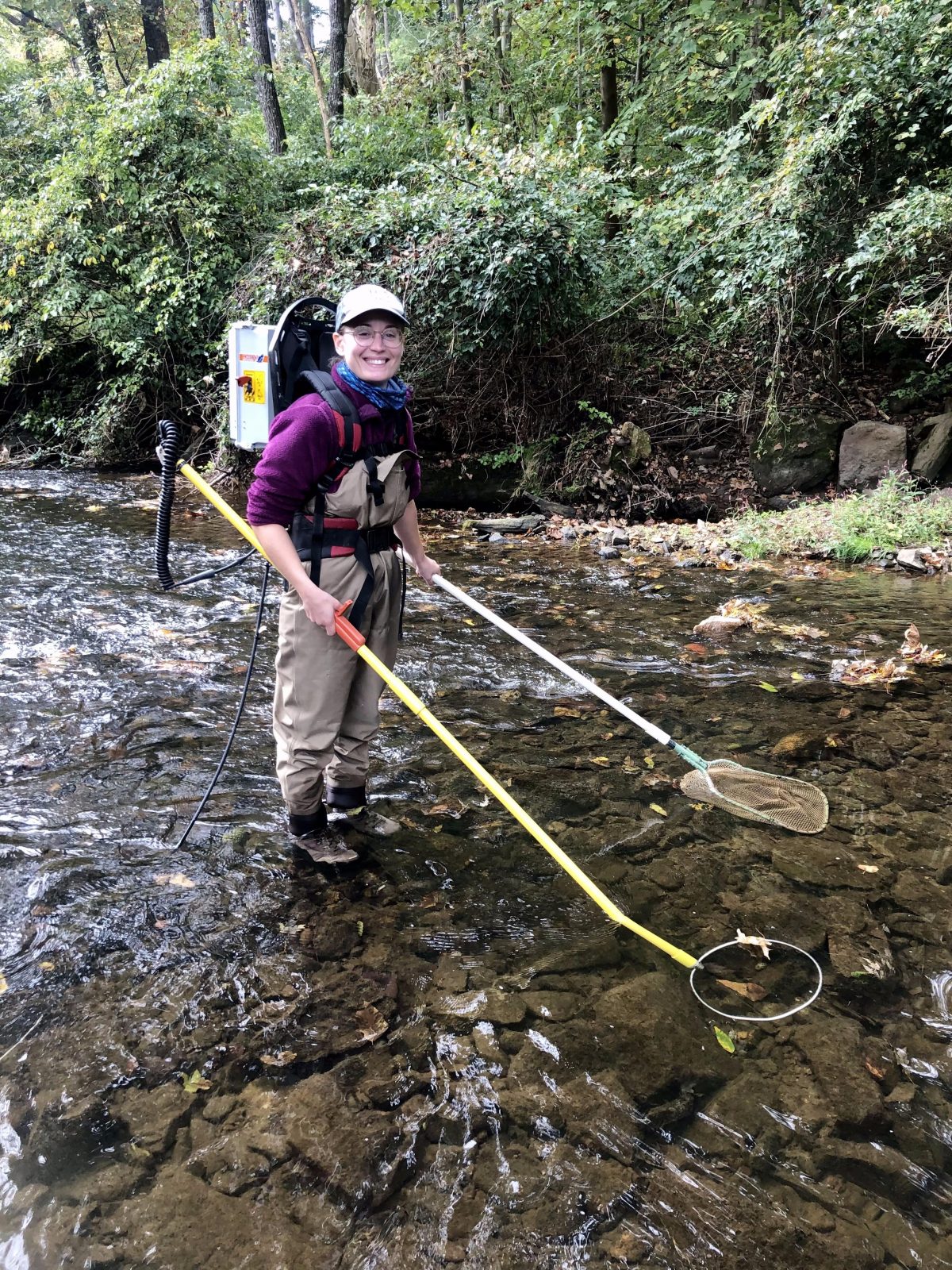 Philadelphia, PA
Philadelphia, PA
- Aquatic Biologist, Pennsylvania Department of Environmental Protection
- M.E.M. in Coastal Environmental Management, Duke University
- B.A. in Biological Sciences, Connecticut College
Your work in your own words…
My role at the Department of Environmental Protection is to assess the health of streams, rivers, and lakes in support of the Clean Water Program, which regulates pollution in the state’s waterways. My work varies each day depending on whether I am in the field, in the lab, or in the office. Field work might include collecting water samples or macroinvertebrates from streams, which I then bring back to the lab to analyze. When I’m in the office, I am usually writing reports based on the data I collected or using geospatial analysis to gather information about our region’s watersheds.
The most rewarding part of my work is that I get to do science that affects environmental policy in the real world. I love that I can see the progression of my work – from the data we collect in the field, to the analysis, to the changing of a permit or policy – all in real-time. Electrofishing for invasive species, learning to trailer a boat, or spending the day wading in a stream are also pretty exciting.
How was your passion for sustainable practices/environmental stewardship stoked and were there any moments/experiences that perhaps had an impact on you?
My passion for environmental stewardship began when I was a kid growing up on a farm in South Jersey and spending a lot of time exploring nature. Being raised in the Quaker faith and attending Friends School helped foster my passion for science and strengthened my sense of responsibility to my community. Over the course of my undergraduate and graduate education, I had the privilege of conducting field work in amazing places – from banding seabirds in Dry Tortugas National Park to trawling for sea turtles off the coast of South Carolina. My love for adventure and science took me to many spectacular places, but I was happy to eventually come back home and work on the environmental issues facing my community.
What are important issues related to environmental stewardship facing our country and world?
Environmental justice is one of the most important issues that we face today. From local to global scales, people have been excluded from the development and implementation of environmental laws in their own communities based on their race, nationality, or income. Working towards equity in environmental decision-making will help create healthier communities and empower people to be stewards of the ecosystems around them.
In light of current events, I would also like to highlight another environmental issue: war. In addition to the terrible human toll, it also wastes immense amounts of resources, destroys ecosystems, and releases toxic pollution that can take decades to clean up. It threatens energy sources and burns fossil fuels. It spreads fear and hopelessness and diverts our energy away from important work in our communities. As members of the Quaker community, I think it is important to recognize that work towards peace is also work towards environmental justice and a healthy planet.
Reflecting on MFS…
The most important skill I learned at MFS is effective writing. The emphasis on writing throughout the curriculum definitely gave me an advantage in academics and in my career. Community service projects and volunteer opportunities also played a big role in directing my career and life choices. While I know my impact is tiny, I take pride in being a public servant and working towards a healthier environment for my community.
One of my favorite experiences at MFS was our service week trip to the Florida Everglades organized by (former Science Department Chair) Dr. Barb Kreider. While it was fun to stay in a hostel with my friends, explore the marshes, and become one with the Florida panther, I also managed to learn a lot. In addition to volunteering in the National Park, we had an eyeopening experience spending the day with migrant farmers in Homestead. This was one of my first exposures to the issue of environmental justice and it has always stuck with me.
Ben Jaffe ’99
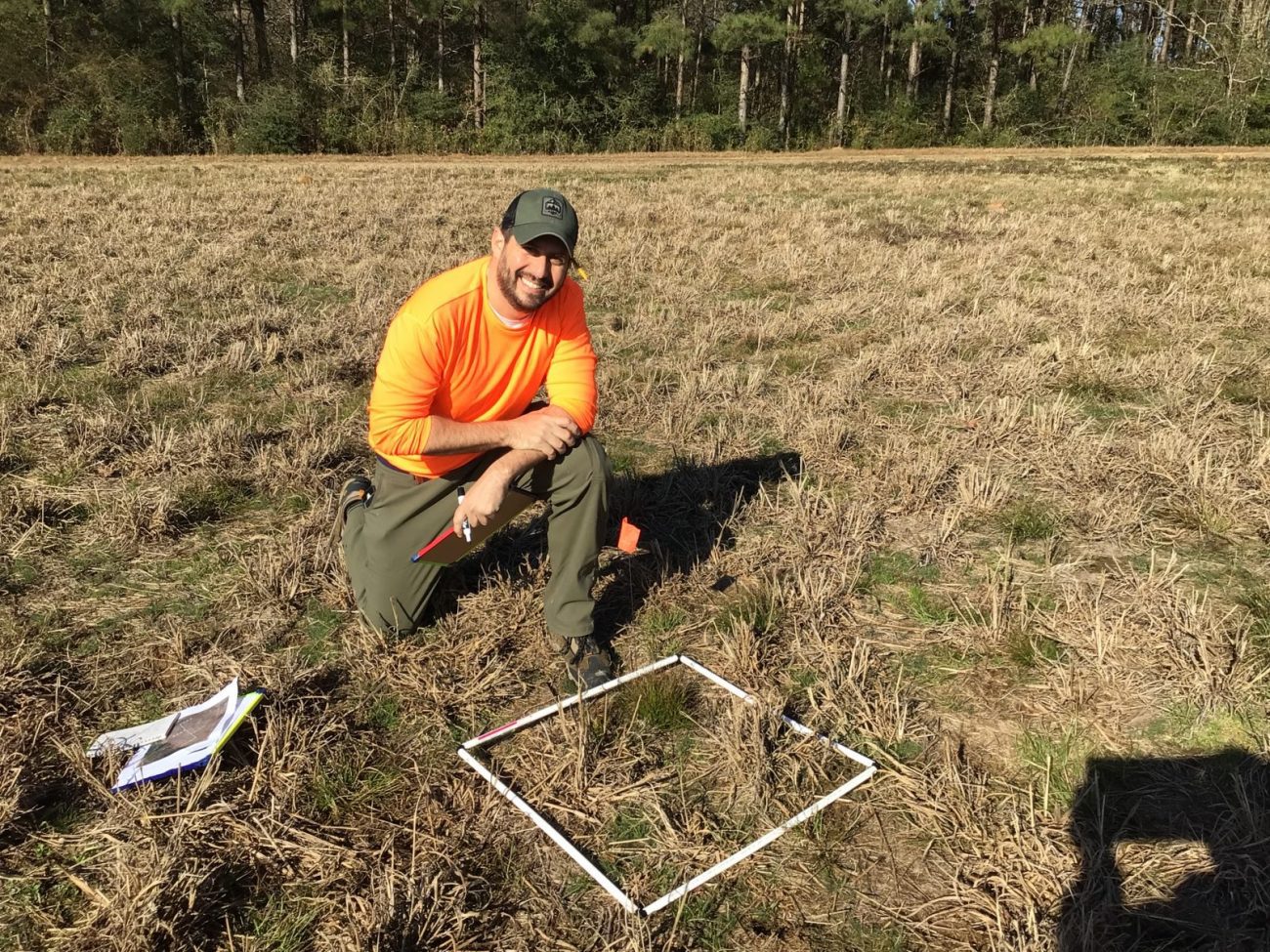 Clinton, NJ
Clinton, NJ
- Applied Ecologist/Environmental Associate, ExxonMobil
- Ph.D. in Ecology and Evolutionary Biology, Northern Arizona University
- B.S. in Animal Behavior and Ethology, Franklin & Marshall College
Your work in your own words…
As an applied ecologist, I try to integrate principles of ecology and environmental science into the company’s sites and operations. My background is in terrestrial ecology, so I support the company on a wide array of plant, animal, and land management issues. On any given day, I can be trying to figure out what native plant species to plant at a site and how to plant them, how to accurately measure biodiversity in really remote areas of the world, or researching how plants can be used to clean-up contaminated material. I also get to steer a lot of different research programs on applying ecological restoration on our sites.
I get to work with a wide range of communities from around the U.S. and the world. Getting to know people, being invited into their communities, while working side by side with them has been really humbling, and rewarding. Working to identify science-based opportunities, successfully putting them into action, and having everyone invested in their success is one of the most exciting parts of my job.
How did your passion for environmental stewardship develop?
My passion for environmental stewardship stems from thinking about the real world application of my Ph.D. work. The gist of the research was assessing the environmental impact of a specific species of fern. This plant takes arsenic out of the soil and stores it in really high concentrations in its fronds (leaves). Why would a plant take arsenic out of the ground? What was the impact this function had on mobilizing arsenic into the surrounding environment on local biodiversity? Interestingly, people wanted to use this plant as a “green” way to clean up soil; Was that even a good idea? There were so many interesting aspects to this system that I think this project really ignited my passion for trying to understand how our actions impact the environment and finding tractable ways to minimize that impact.
What are important issues related to environmental stewardship facing our country and world?
I think that one of the most defining questions of our generation is how we, as a society, continue to grow without jeopardizing quality of life or the environment. In the energy sector, this question revolves around how to supply affordable and reliable energy while also minimizing environmental impacts. In agriculture, this question could be how to grow enough food to feed people while minimizing the amount of pesticides needed. Inherently, there are trade-offs to every choice we make, and so what information do we need to make informed choices? It is easy to go down a rabbit hole of important environmental issues, and these issues could be very different depending on where you live in the world. One thing that is universal is the need for broad expertise. Environmental stewardship needs people trained in agriculture, architecture, art, biology, chemistry, computer science, economics, engineering, forestry, law, social sciences, amongst others.
How has your Moorestown Friends education served you in your career and life?
I look back fondly on my time at MFS. I don’t know if it is the Quaker philosophy, or the small class sizes, but the MFS community radiates empathy. These days, empathy is needed more than ever. Perhaps more than any individual class, just being able to be a part of the MFS community and being able to grow in safe space, was the most impactful aspect of my MFS education.
I have ended up adapting the principles that underpin Meeting for Worship into my life. Every week, I block time to reflect on the week past, what I can do better, and what my goals are for the upcoming week. It’s apparent that this philosophy evolved from my time during Meeting for Worship at MFS, and I am thankful to have had that experience.
Joe Bundens ’01
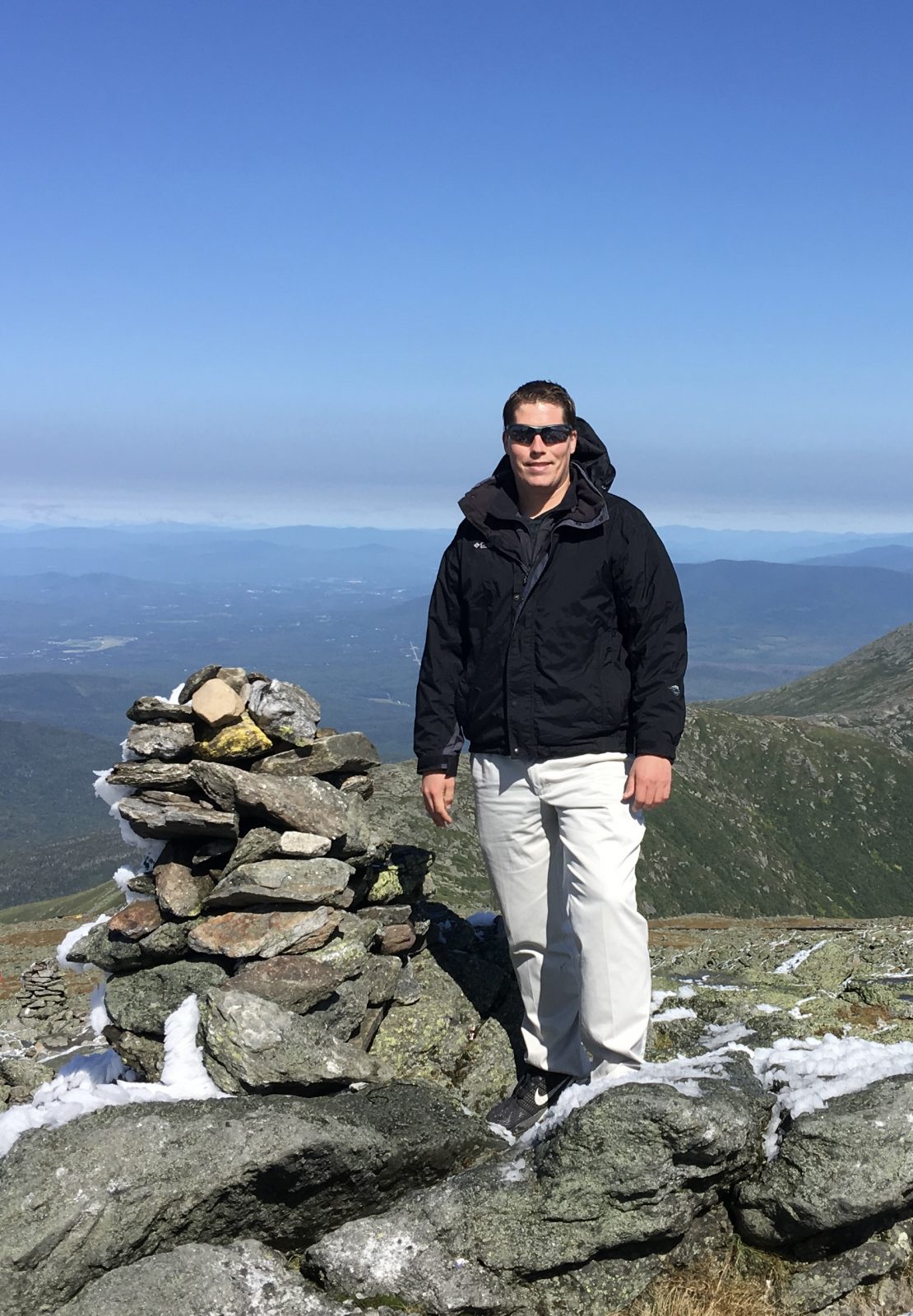 Henderson, NV
Henderson, NV
- Environmental Scientist/Project Manager, U.S. Environmental Protection Agency (EPA)
- Currently in Doctorate of Public Policy Program at University of Nevada, Las Vegas
- M.S. in Environmental Science, Drexel University
Your work in your own words…
I currently work for the U.S. EPA in Las Vegas as part of the Environmental Response Team (ERT) where we assist regional offices across the country with project support for superfund cleanups. We also conduct responses to emergencies including the wildfires in California and hurricanes in Puerto Rico and the U.S. Virgin Islands. Prior to that I worked as an EPA contractor with Weston Solutions in Edison, NJ, where I led hazardous assessment and removal of contaminated soil and groundwater.
It’s exciting that I get to work in the field that I enjoy and the position I looked towards during my educational and professional career.
How did your passion for environmental stewardship develop?
During my master’s program at Drexel University I took several courses in environmental justice and environmental policy. This led me to pursue environmental policy during my career and fueled my passion to consider creating sustainable policies in the future. As long as you have the passion and enjoy the subject, these are the real keys to success. This has pushed me far through my education and career, even during times when things were difficult and work gets tough. Environmental science or engineering are important degrees. However, environmental policy is equally as important to translate the knowledge into legislation and action.
What are important issues related to environmental stewardship facing our country and world?
Climate change is obviously the leading concern today. Reducing our use of fossil fuels is the number one issue which needs to be completed by 2050. As a society we should aspire to have zero greenhouse gas emissions (GHG) by 2040 because it takes about 10 years for the impacts of GHG emissions to dissipate. The second issue I see is environmental degradation of our communities, natural lands, and waterways. Urban environments and pollution are contributing to health concerns like asthma and an increase in cancer rates. Additionally, almost every major river in the U.S. has issues with pollution from hazardous waste and chemicals, from industrial waste, fertilizers and pesticides, and over nitrification from agriculture.
Reflecting on MFS…
MFS was where I took my first Environmental Science class and this sparked my interest during my junior and senior years. I am also thankful I was introduced to Wesley College’s environmental science program. My favorite MFS memory was playing catcher on the varsity baseball team led by Coach Ron Obermeier.
Sarah Van Cleve ’07
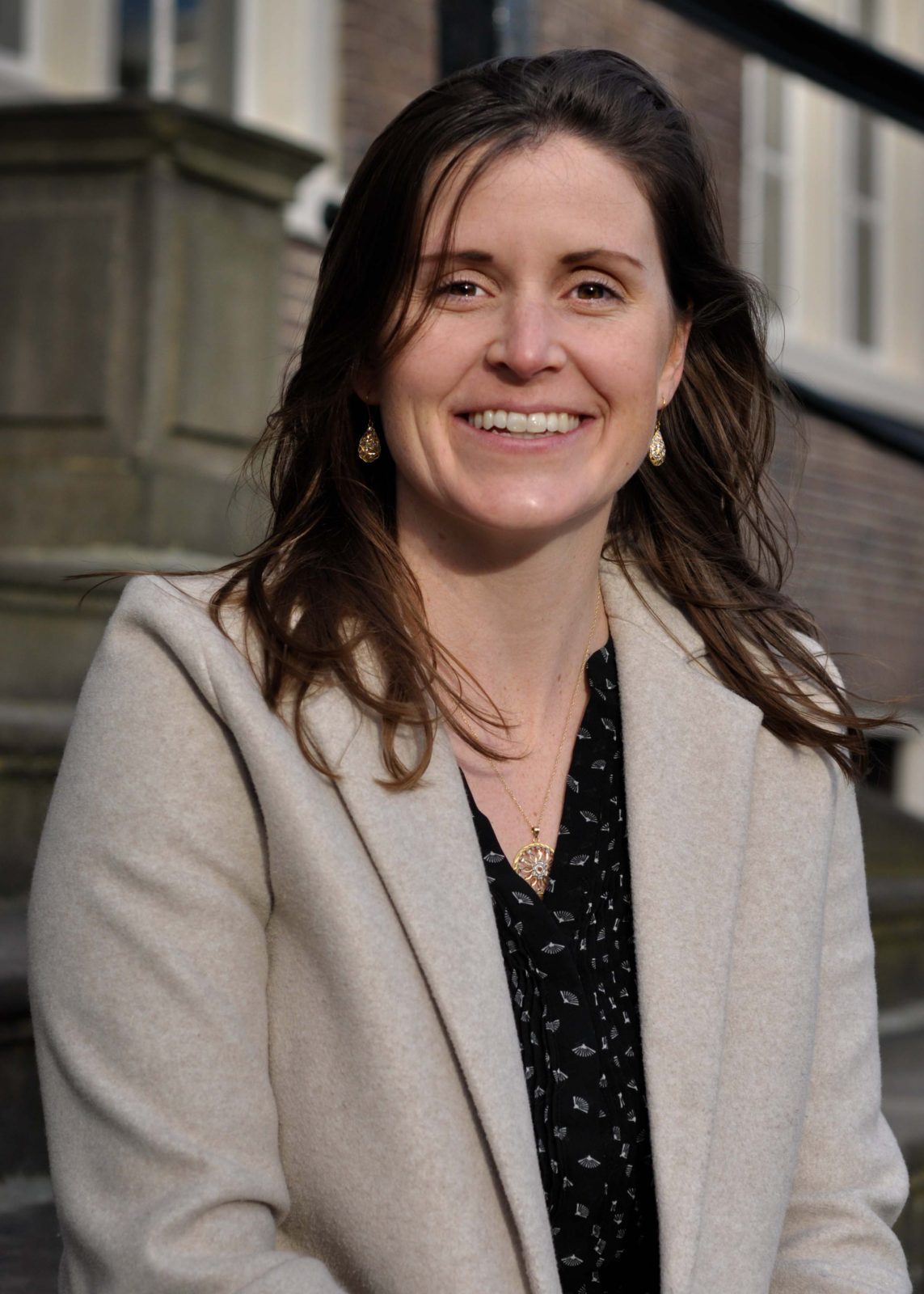 Amsterdam, Netherlands
Amsterdam, Netherlands
- Head of Commercial & Utility Battery Storage Sales for Europe, Middle East, and Africa, Tesla
- B.A. in Economics, minor in Environmental Studies, University of California, Los Angeles
Your work in your own words…
My role is to lead the Tesla team that’s developing the market for large-scale battery storage systems to support the electric grid in Europe, the Middle East, and Africa. Our focus spans from ensuring that appropriate policies are in place to value battery storage on the electric grid, to working with potential customers to develop the right size and applications of battery storage systems, all the way through signing contracts for the sale of the battery storage systems.
The most rewarding part of our work at Tesla is definitely knowing that what we’re doing is accelerating the world’s transition to sustainable energy. Every Tesla employee is very motivated by this common mission, and I do think that Tesla is spearheading technologies that will be the standard in a decade. On my scope of work specifically, it’s quite exciting to sign firstof-their-kind battery storage deals, whether that’s the first utility battery system in a new country, biggest battery system in a country, or first of-its-kind application of battery storage – each of these projects feels like an important step towards further decarbonizing electricity.
How did your passion for environmental stewardship develop?
There wasn’t a single moment in which I decided I wanted to do work related to the environment but rather many moments over many years. I was privileged to get to do a lot of snowboarding and scuba diving as a teenager which made me appreciate the outdoors. I was part of the Outdoors Club at MFS where (former Science Teacher) Mr. Blatherwick would take us on walks to discover the interesting nature that you can find even just around school. That and (former Science Department Chair) Dr. Kreider inspired me to take three science classes my senior year at MFS, including Environmental Science, which gave me an introduction to environmental science as a real field. That led me to take a year-long environmental science series during my first year at UCLA, which turned the subject into my minor. And perhaps my favorite class at UCLA was an environmental economics class, which led me to realize that working in the field of energy was where I could likely have the most impact on the environment, and at addressing climate change in particular.
What are important issues related to environmental stewardship facing our country and world?
Obviously, there are many environmental issues worth addressing but one I’ve chosen to focus on is climate change given that it is the existential threat of our time. My opinion is that we will only sufficiently mitigate climate change with sweeping policy change, however, individual actions can absolutely help. Personally, I do things like limiting the amount of meat that I eat, cycling and taking public transit, and wearing extra layers instead of heating my house much. They’re small changes but if we all did them, they would add up.
Reflecting on MFS…
Moorestown Friends gave me the foundation of a well-rounded skill set that is extremely useful in business. Having a reasonably high aptitude across many skills from math to writing enables one to take on multifaceted problems, which is key to being successful in business. Interestingly, I also think that learning how to bring a group to consensus – a skill that I developed in part in Meeting for Worship for Business – has helped me quite a bit, as it’s a skill that I use nearly every day in my work.
One practice that I’ve carried with me from MFS that I think helps me greatly in both my life and my career is making time to be with only my thoughts. When I joined MFS in sixth grade and was first introduced to Meeting for Worship, the idea of sitting silently for 40 minutes was quite daunting. However, I think I grew to understand how to utilize the time by Upper School, and I still go out of my way to find time to be without distraction for extended periods of time. I seem to have my best ideas about what I should do in life and work during this time, and I don’t think I ever would have known to make this time without having been introduced to Meeting for Worship.
Bryan Alley ’95
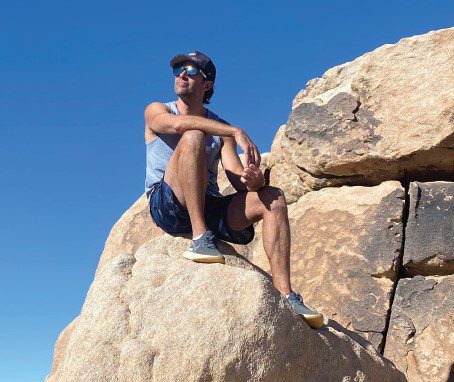 Manhattan Beach, CA
Manhattan Beach, CA
- Co-Founder and Owner, E-Cycle Environmental
- B.S., University of Vermont
Bryan Alley and Jason Parr founded E-Cycle Environmental in 2004. E-Cycle Environmental’s mission is to provide businesses with simple turn-key solutions that promote green practices throughout the workplace. As stated on the company website: “Our organization is built and designed around solid business principles focused on supporting the planet. The environment is the driving force behind E-Cycle Environmental, thus the reason we have implemented one of the world’s most environmentally friendly recycling organizations.”
Your work in your own words…
I spend a lot of time talking to clients, working on our marketing and strategies to generate new business, and finding new environmental solutions for waste streams. The best moments are when I am able to bring unique landfill diversion solutions to my clients. For example, I currently work heavily in the apparel industry, helping them with their product returns. A lot of these returns they don’t want resold because it could taint their brand image. I provide a destruction process that generates clean electricity. For every 2,000 pounds of apparel I destroy, enough electricity is created to power one household for a month.
How did your passion for environmental stewardship develop?
In college I took an Environmental Studies class. I read a book by Paul Hawken, The Ecology of Commerce. It really struck a chord with me. It is all about a closed-looped economy, how everything is tied to one another, so there is very little waste. Fast forward six years later I came across the electronic recycling industry and jumped in!
What are some specific ways that current students can prepare for careers/lives that foster environmental stewardship and sustainable practices?
I would say, look out because there is a lot of fluff. A lot of organizations claim to be environmentally friendly when they really aren’t. You really need to dive into all the downstream outlets the environmental company is utilizing. There are a lot of unscrupulous characters in our industry. Many times if they are saying something that is too good to be true, it probably is.
What are important issues related to environmental stewardship facing our country and world?
Unfortunately, so many things that are being “recycled” or “reused” get sent to third world countries. That is the biggest problem I see. We think a lot of things are getting recycled. What is really happening is items are put in a container and sent to a third world country. Things are picked through then the rest goes to landfill. The other common practice in third world countries is material gets recycled in a highly unregulated way. So more damage is being done than good. The environment is exploited and so is the labor that is being utilized. My advice is to keep it local. Find smaller companies and businesses that really care and will do the right thing.
Reflecting on MFS…
I think Moorestown Friends really provides you with a good moral compass. I had to walk away from a lot of deals because I do things the right way and really do protect our environment.
I always reflect on (late former English Department Chair) “Doc” Lavia standing up in Meeting for Worship saying how special MFS is because nowhere else in life will you have such a large group of people that know each other so intimately. I remember sitting there thinking, ‘what does he know? college is gonna be where it’s at.’ Well Doc was right! Anytime I meet up with someone from MFS, it’s like we never skipped a beat. When I think back to MFS, I always felt safe and loved by my teachers and classmates. I think that is really hard to find.
Vanessa Kara ’15
 Burlington, NJ
Burlington, NJ
- Environmental Engineer, Brown and Caldwell
- Professional Soccer Player, Dominican Republic National Team
- M.S. in Sports Management, University of Florida
- B.S. in Civil Engineering – Water Resources Engineering, Drexel University
Your work in your own words…
Brown and Caldwell (BC) is a dynamic company with a diverse range of expertise. I aid the team’s water distribution models for different projects through software like ArcGIS. I help my team create projections for water consumption, distribution, and water losses with the purpose of creating models and designing water systems that are environmentally and economically efficient. The most exciting thing about working at BC is that I can learn from a variety of people while also working on a wide spectrum of projects. I am getting exposed to all different components of water resources engineering, which is conducive to a great learning experience. I couldn’t think of a better place to start my engineering career.
How did your passion for environmental stewardship develop?
I fell in love with sustainable practices and water resources during my junior year at Drexel. I was far into my civil engineering degree when I had a simple Hydrology class. On the first day, the professor said something like, “the water on earth is in a closed system” – an intuitive statement that I knew and have heard multiple times, but hearing this on that particular day changed the way I viewed water. Water is an incredibly valuable resource and it’s a closed system – meaning the amount of water on earth stays the same; therefore, I believe we have to take care of it and use it efficiently. Shortly after this class, I picked up a concentration in water resources and have continued running with it.
Editor’s Note: Vanessa, who was recruited to play for the Dominican Republic’s FIFA Women’s World Cup Qualifying Soccer Team (see Class Note on page 42), is spearheading a campaign during the team’s qualifying campaign to raise awareness and help improve access to clean water.
For World Cup Qualifying, I am trying to combine my two passions by creating a campaign for clean water through the organization charity: water. The campaign is called “Calificar Para Agua Limpia.” During qualifying games, we have a platform to be meaningful and support the community. I talked to my teammates and they ran with me in supporting my passion for clean water access.
What are some of the leading ways that people can be environmental stewards in their everyday lives?
I think people should start by becoming aware of their own tendencies and practices. I believe awareness, change, and progress originate from the inside-out, not the other way around. I would implore people to start with themselves by making personal decisions that have better environmental impacts, and once they build up sustainable practices I recommend getting involved with environmentally conscious organizations, charities, and communities to further their practices and hopefully cultivate change.
Reflecting on MFS…
Moorestown Friends has had such an amazing impact on my career and life because MFS taught me that I could be more than one thing. MFS gave me the confidence to try new things, learn, and grow. I have carried that mentality with me ever since graduating in 2015, and it is precisely what has allowed me to become a professional soccer player, environmental engineer, coach/mentor, and a writer. I feel multifaceted, thanks to my MFS education and experiences.
Mya Corsey ’19
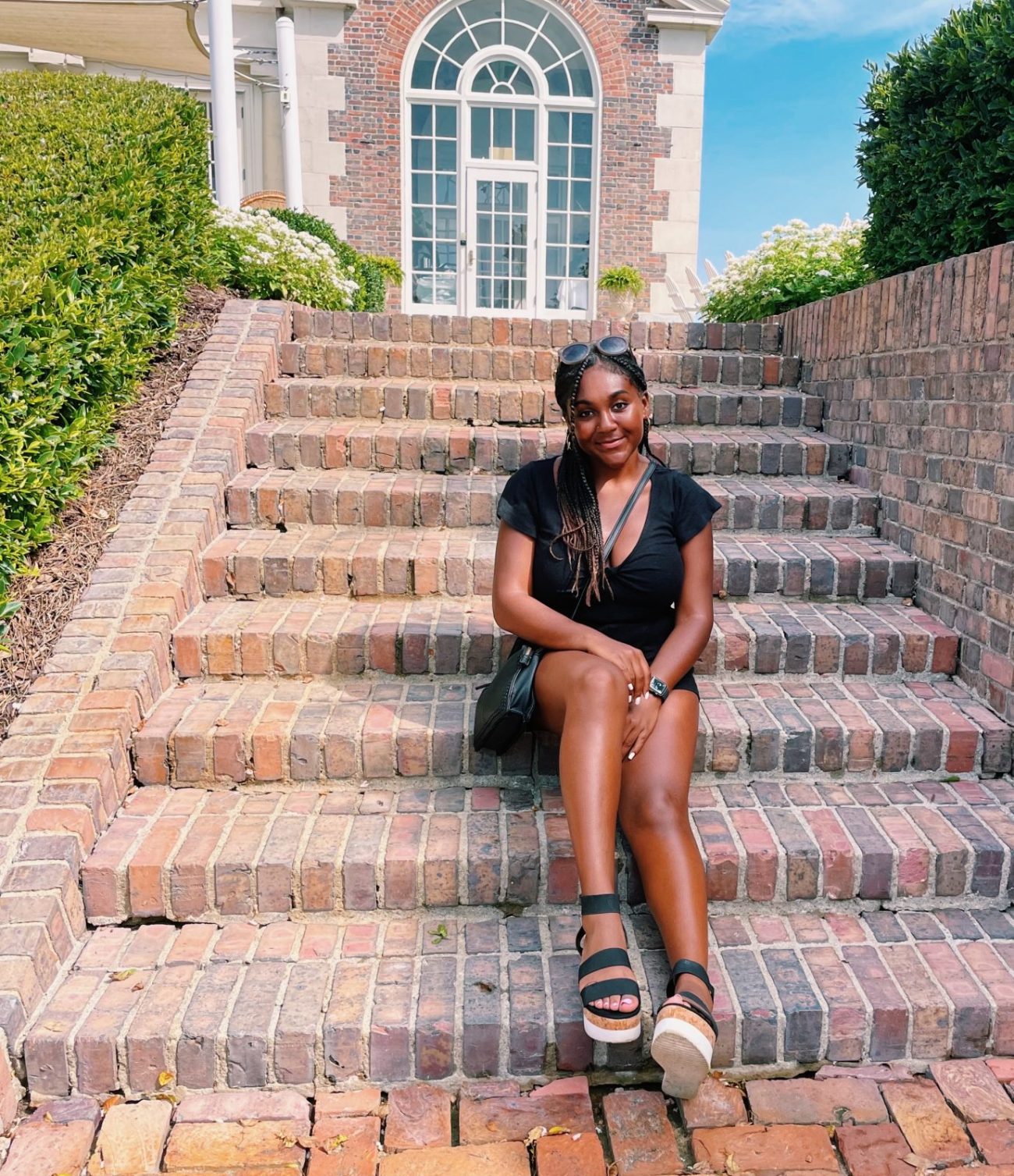 Pittsburgh, PA
Pittsburgh, PA
- Student, University of Pittsburgh
- Major: Environmental Science
Your coursework in your own words…
At the University of Pittsburgh, I am an environmental science major studying in the Environmental Science and Geology Department, and I am on track to get a certificate in sustainability. At the foundation of my major, there is biology, chemistry, and physics, but what I learn and participate in presently are ecology and environmental classes. In this more specific part of my major, I learn about environmental issues, environmental policy, and the climate crisis. In my sustainability certificate classes, I learn how to contribute quickly and effectively to the use of sustainable technologies, sciences, and practices. I have enjoyed all the classes I have taken so far but my two favorite have been “Atmosphere, Ocean, and Climate” and “Environmental Issues.” In my Atmosphere, Ocean, and Climate class, it was fascinating to study climate change projections and policy while also learning about the past and future of Earth’s oceans and atmosphere. The Environmental Issues class is a writing-intensive course that requires a full-length policy paper written about environmental issues of our choosing in a specific state. The end goal of this course is to send our policy paper to the government of that state and evoke a response back.
What’s Next?
After college, I want to attend graduate school to participate in research and learn more about environmental science and sustainability, or go to a sustainable business master’s degree program where I can combine business with sustainability. I am leaning more towards sustainable business because I can learn about management, environmental studies, business operations, economics, and politics combined, and I think that would be very interesting. If I don’t go to graduate school, I hope to go directly into the environmental science field – consulting, policy, or research.
How did your passion for environmental stewardship develop?
I have always had a love for the Earth and a passion for environmental issues. Ever since I was little, I loved learning about climate change and watching different climate change and environmental documentaries. I used to read the National Geographic Kids magazines all the time and even had dreams to work there. I also think growing up in the Science Department at MFS made me destined to do something in the STEM field. In May of this year, I get to combine my love and passion for sustainability with my academics. I have the pleasure of going to Amsterdam for a month to learn about sustainability and how Amsterdam became the “Ecocapital of the World.”
Reflecting on MFS…
The whole Science Department had a significant impact on me and my career path. My mom (Science Teacher Tina Corsey), Mr. Newman, Mr. Aviles, Ms. Bruvik, and Dr. Mosher all gave me the skills and drive that I needed to be able to do well in the classes I am taking in college, but also the skills I need in life. I don’t think I would have been as successful in my STEM or environmental classes without the MFS Science Department. I also don’t think I would have been able to feel confident in my problem-solving abilities and science skills like I am now. I feel like overall, MFS really shaped me to be the person I am now and directly and indirectly led me into the sustainable career path and journey that I am currently on.
I owe everything to MFS. Without that environment, I wouldn’t be where I am today. Not only did I find amazing friends and relationships with people in my class, but I also created a lot of amazing relationships with my teachers. These teachers guided me and laid down a perfect foundation for me to succeed in college. I went to MFS from the age of 3 to 18 years old. MFS wasn’t just my school, but it was my home, a place where I grew up and became me. If I didn’t have MFS, I wouldn’t be the fullest extent of the person I am today. There is no way I would have the drive to study and participate in STEM or sustainability without it.
Alumni News
Headlines for Alumni – March 3, 2025
Table of Contents Cory Colijn ’06 Headlines Career Day with Keynote RemarksBoys' Basketball Captures BCSL Division Crown; Zak Bah '25 Reaches 1,000-Point Milestone David Martinez ‘00 Honored with Deloitte’s 2024 US Purpose MVP AwardWelcome to Headlines for Alumni! New...
Bella Runyan ’20 Inducted into the South Jersey Invitational Basketball Tournament Hall of Fame
Former Girls' Basketball star Bella Runyan '20, who went on to have a stellar career at Villanova, was inducted into the South Jersey Invitational Basketball Tournament (SJIBT) Hall of Fame. The SJIBT is a 32-team tournament featuring the top area Girls' Basketball...
Headlines for Alumni – January 31, 2025
Table of ContentsPeace Corps Volunteer Matthew Knowlton '17 Visits CampusMLK, Jr. Day Service Program - Reviving a TraditionTwo Boys Soccer Players Named First Team All-South JerseyWelcome to Headlines for Alumni! New in 2024-25, this newsletter features a few short...



